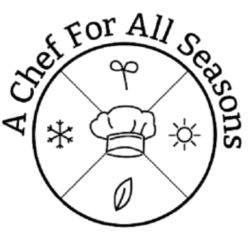TLDR: Finding a chef job doesn’t have to be hard. This guide helps you focus on the right roles, showcase your skills, and build a strong personal brand—so you can job hunt with clarity and confidence.
Searching for your next chef role can feel like an endless grind—especially if you’re unsure where to start or what direction to take. But a little planning goes a long way. Whether you’re a commis chef, a sous chef ready to step up, or a seasoned professional seeking a better kitchen fit, a strategic plan can streamline your strategic plan for chef job search, sharpen your focus, and open doors to the right opportunities.
Here, we’ll walk you through each step of creating a tailored, effective job search strategy built for chefs in today’s market—one that saves time, avoids burnout, and lands you where you truly belong.Table of Contents
- Why Strategy Beats Spontaneity in Job Hunting
- Clarify Your Culinary Career Vision
- Audit Your Skills, Strengths, and Achievements
- Target Employers That Fit Your Values
- Structure a Smarter Application Process
- Build a Recognisable Personal Chef Brand
- Leverage Your Network to Get Ahead
- Stay Focused with Simple Job Tracking Tools
- Conclusion
- FAQs
1. Why Strategy Beats Spontaneity in Job Hunting
It’s tempting to send out as many applications as possible and hope something sticks. But this “spray and pray” method rarely leads to quality job matches.
- Land interviews faster by applying to roles that truly fit.
- Avoid burnout by focusing on meaningful opportunities.
- Grow faster in their careers by aligning with the right kitchens.
A strategic approach filters out distractions and keeps your energy focused where it matters.
2. Clarify Your Culinary Career Vision
What kind of chef do you want to be next year? In five years? Defining your goals early ensures you pursue roles that support your development—not just your current paycheck.
- Do I want to run my own kitchen or lead a brigade?
- Am I drawn to fine dining, plant-based cuisine, or sustainable cooking?
- Would I prefer creative autonomy or structured systems?
Action Tip: Write down your short-term (6–12 months) and long-term (2–5 years) goals. Use them to filter opportunities moving forward.
3. Audit Your Skills, Strengths, and Achievements
Before applying anywhere, take stock of what you bring to the table.
- Experience: Kitchens you’ve worked in, roles held, notable events catered.
- Technical Skills: Knife work, plating, baking, menu development, etc.
- Soft Skills: Leadership, problem-solving, calm under pressure.
Pro Insight: Maintain a digital or physical portfolio. Include high-quality photos of dishes, awards, certificates, and customer feedback when possible.
4. Target Employers That Fit Your Values
Not every kitchen is the right kitchen for you. A smart job search means aligning with employers whose culture, cuisine, and vision resonate with your own.
- Type of Cuisine: Michelin-starred, fusion, gastropubs, or high-end catering.
- Kitchen Culture: Fast-paced or slow and methodical? Creative or traditional?
- Career Progression: Do they invest in staff training and development?
Action Tip: Make a “dream list” of five employers. Follow them on social media, track vacancies, and engage with their posts.
5. Structure a Smarter Application Process
Treat your job search like a project. Get organised so nothing slips through the cracks.
- Update Your CV: Tailor it to highlight the experience and skills that match the role.
- Craft a Targeted Cover Letter: Avoid templates. Show you understand their kitchen.
- Practice for Interviews: Rehearse answers to questions about leadership, handling pressure, and creativity.
- Track Everything: Use a spreadsheet or app to log applications, deadlines, and responses.
6. Build a Recognisable Personal Chef Brand
In a crowded job market, how you present yourself matters.
Here’s how to build a strong brand as a chef:
- Professional Bio: Summarise your culinary journey, passion, and unique flair.
- Digital Portfolio: Use Instagram, a blog, or a website to showcase signature dishes and behind-the-scenes work.
- Consistent Design: Your CV, online profiles, and even plating style should reflect your personality and culinary point of view.
Recruiters and head chefs often Google applicants—make sure what they find tells the right story.
7. Leverage Your Network to Get Ahead
Some of the best jobs never get advertised. They go to chefs already known and trusted in the industry.
To tap into the hidden market:
- Attend culinary expos, pop-ups, and local food events.
- Reconnect with former mentors, colleagues, and restaurant managers.
- Join online forums, local Facebook groups, and WhatsApp chef circles.
- Use LinkedIn to connect with chefs and hospitality recruiters.
Action Tip: Always follow up with a brief message after meeting someone. Keep the relationship warm.
8. Stay Focused with Simple Job Tracking Tools
Without a system, it’s easy to lose track of where you’ve applied or when to follow up.
Create a basic job tracker that includes:
- Employer name
- Job title
- Application date
- Interview dates and notes
- Follow-up status
Use Google Sheets, Notion, Trello—or whatever helps you stay on top of things. Staying organised keeps your job search smooth, timely, and frustration-free.
Conclusion
The chef job search doesn’t have to feel like guesswork. When you define what you want, highlight what makes you unique, and approach applications with purpose, you turn a chaotic process into a career-defining opportunity.
Looking for a chef job that fits your goals? Our platform helps chefs connect with kitchens that value their skills, vision, and work ethic.
How do I start a strategic chef job search?
Begin by defining your career goals, auditing your skills, and identifying the type of kitchen you want. This helps focus your applications and avoid burnout during the job hunt.
What makes a chef CV stand out?
Tailor it to the role, include achievements, high-quality food photos, and showcase soft skills like leadership or pressure handling. A strong digital portfolio also boosts visibility.
How can I find chef jobs before they’re posted online?
Network actively—attend events, connect with former colleagues, join chef groups, and engage with restaurants on social media. Most top jobs are filled through word of mouth.










